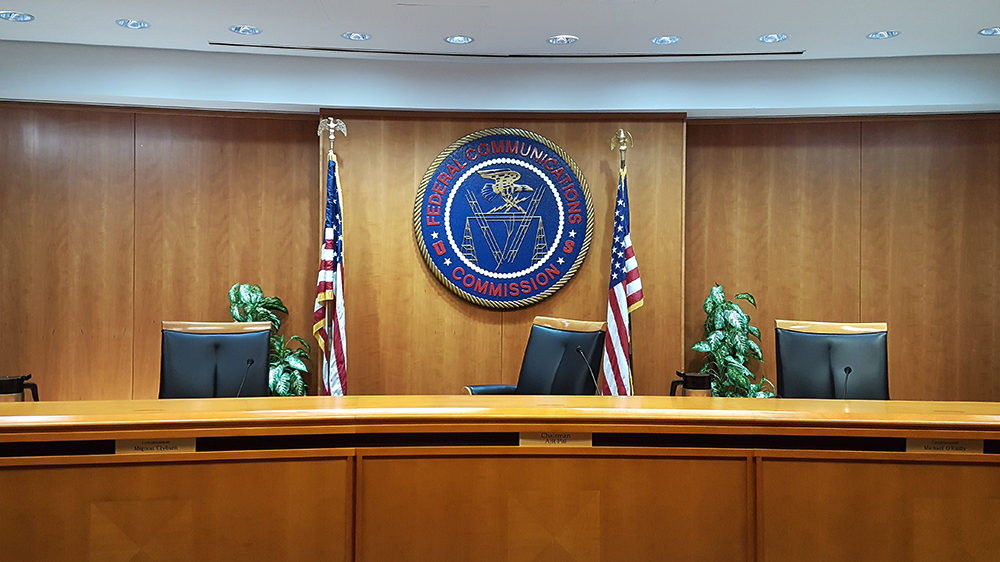Since it became obvious that internet access was going to be an essential for everyday living, the Federal Communications Commission has wrestled with how to encourage providers to build expensive wired networks to reach rural and remote communities, but not with much luck. Now the FCC is considering a new tactic for solving this problem: Suggesting that maybe there isn’t a problem so long as you can get online with your phone. [More]
broadband access
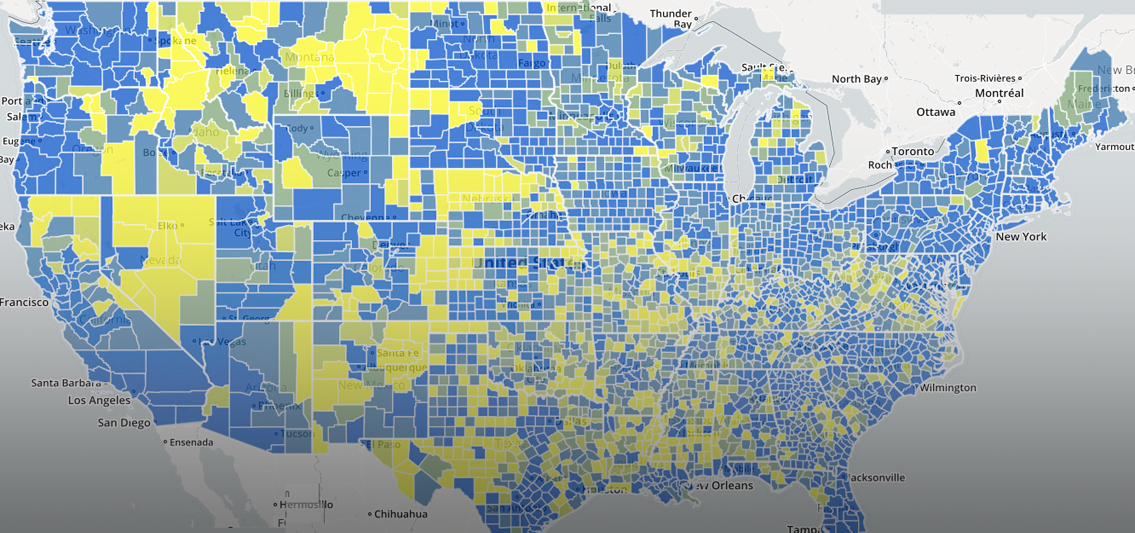
The Internet Can Help Treat Sick People In Rural America, But Most Lack Adequate Access
For many of us who live in cities or suburbs, doctors and hospitals are plentiful and nearby. That’s not true for much of rural America, where medical care can be harder to come by. New broadband technology could help bridge that gap, providing care to people everywhere, but it’s of little use if the folks who need it most aren’t able to get online. [More]

FCC Stops Authorizing New Providers Of Low-Cost Broadband
New FCC Chair Ajit Pai has made no effort to hide his intention to roll back many of the rules and policies put in place by his predecessor, Tom Wheeler. Now that Congress has effectively undone Wheeler’s internet privacy rules, Pai has set his sights on low-cost internet access. [More]

AT&T Launches Its Own $10 Internet Access Program For Low-Income Households
AT&T is today making good on a promise it had to make to the FCC last year, announcing their new program to connect more poor Americans to the internet and bridge that infamous digital divide. [More]
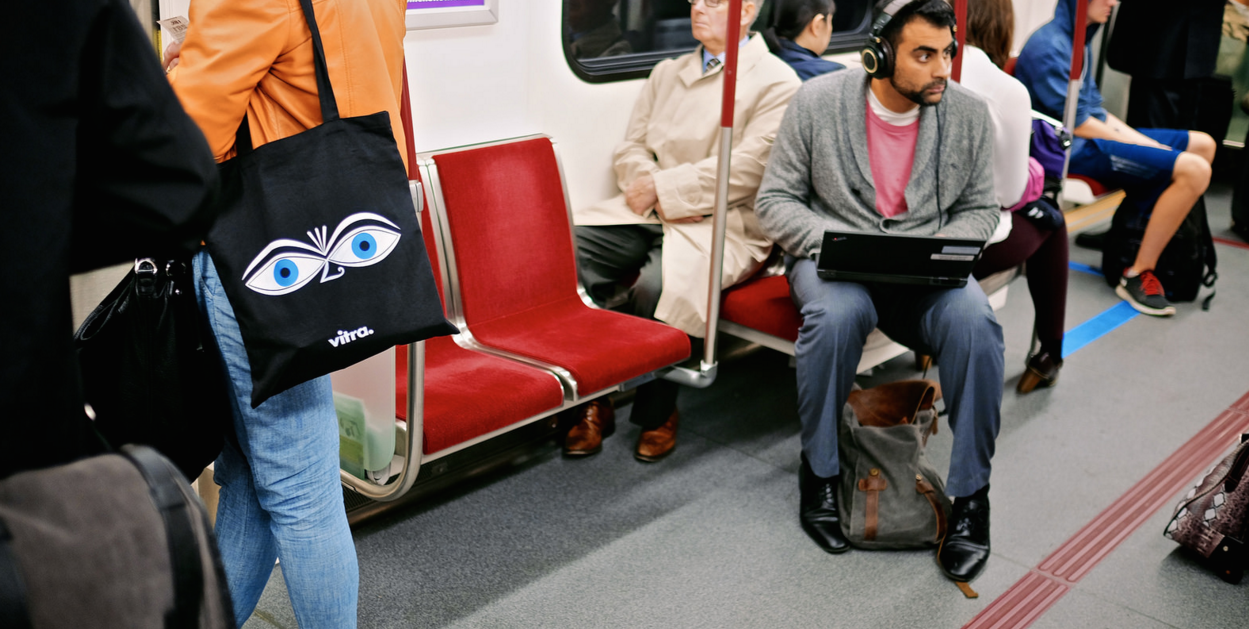
Divided FCC Votes To Approve Lifeline Modernization, Consider New ISP Privacy Rules
The Federal Communications Commission today in their monthly meeting voted narrowly to move forward with two high-profile, contentious proposals. One is formally adopting a plan to modernize the Lifeline program, and the other is to start considering how to apply stronger consumer privacy protections to ISPs. [More]
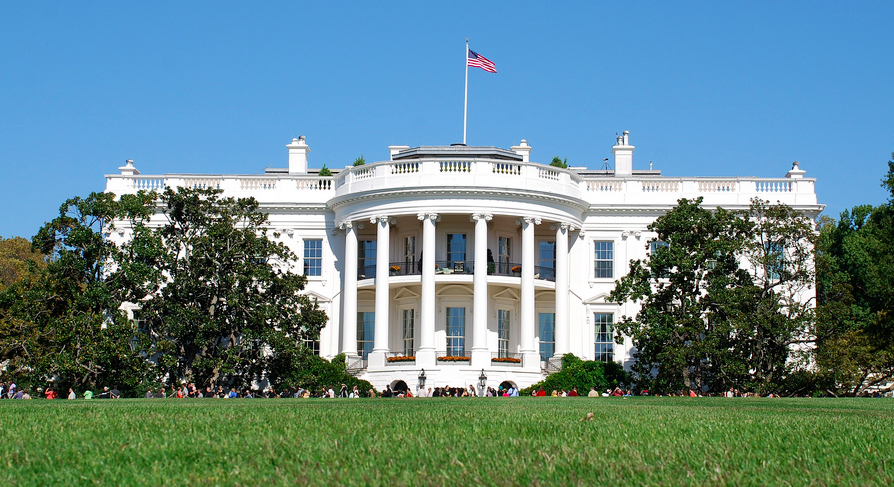
White House Announces Initiative To Expand Broadband Access To 20M More Americans
We see new studies confirming it every year: while nearly everything is now on the internet, we still haven’t gotten everyone online. Access remains hard for those at the lowest economic levels, or at the most rural addresses. So to combat that, the Obama Administration announced today a comprehensive strategy for bringing millions more online. [More]
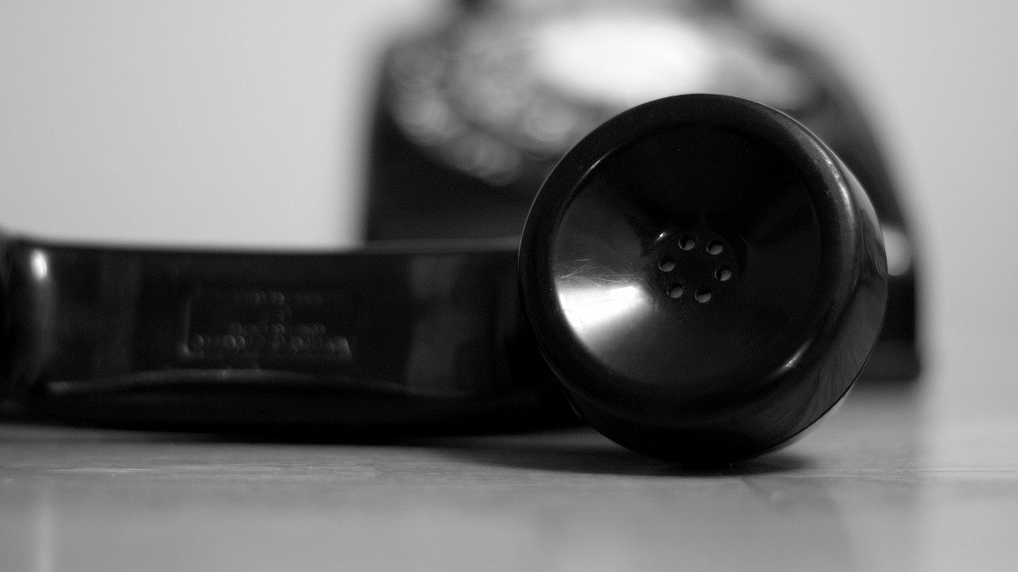
FCC Announces Official Lifeline Modernization Proposal, Will Vote On It This Month
Internet access is a necessity, but it’s also kind of a luxury: the poorer you are, the less likely you are to be able to have it. Even while, to keep living in the always-on, always-connected world of the 21st century, you really need it. [More]
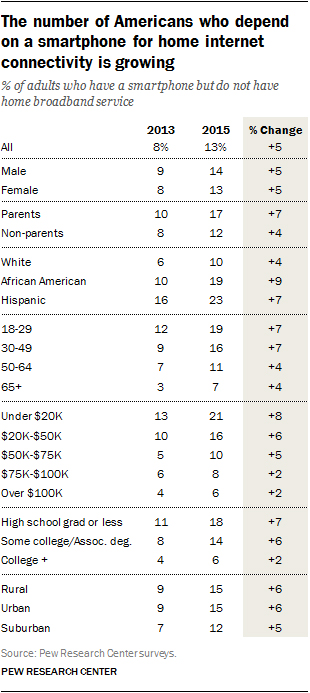
Study: Home Broadband Subscriptions Are Falling As More Americans Live By The Smartphone
There’s a general feeling in the air that mobile everything is the wave of the future. Optimized websites, streaming apps, new data packages… everything points to a continuing trend of our lives centering around the pocket computers we all carry and still anachronistically call “phones.” It’s one of those things we all “know,” anecdotally as much as anything else. But now there’s new data showing that not only is the mobile future already here, but also it’s robust enough that consumers are starting to pull the plug on their home internet connections. [More]
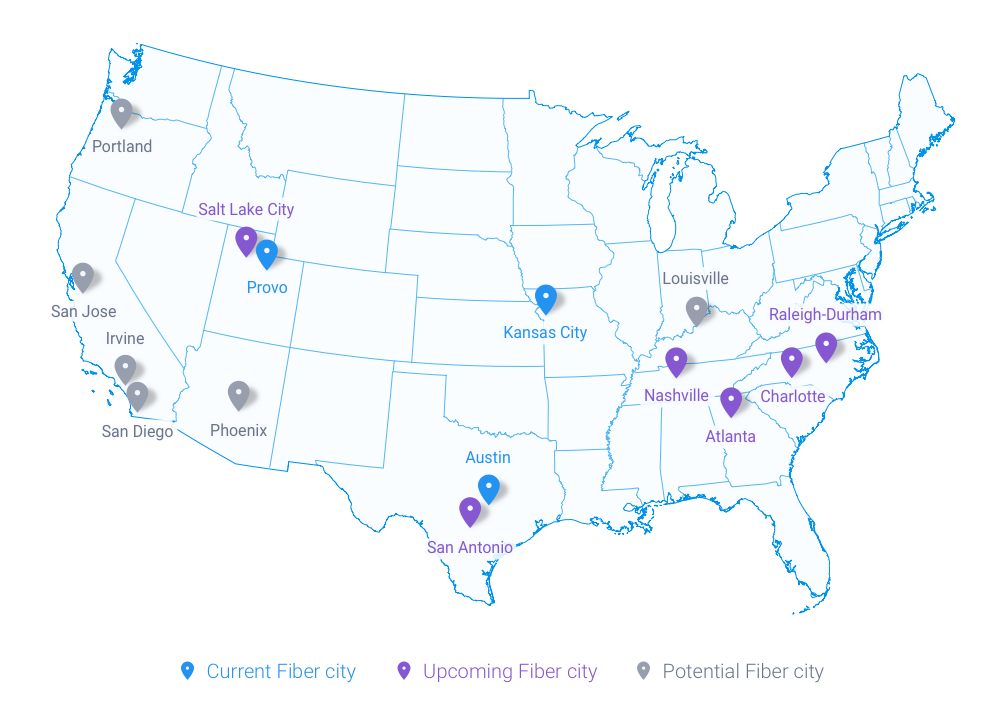
Google Fiber May Expand Again: San Diego, Irvine, Louisville Now On List
Google has once again lengthened their shortlist of cities that could someday soon see Google Fiber service. If all the plans pan out, the next expansions will come in California and Kentucky. [More]
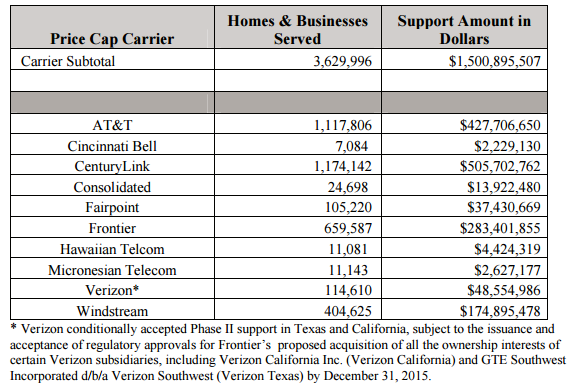
Ten ISPs Sign On With FCC Fund, Will Expand Rural Broadband To Over 7M Customers In 45 States
While those of us who live in or near the country’s medium and large cities see slow but eventual improvements in broadband service and sometimes even some competition, the same is not true for millions of Americans who live in the more rural parts of the country. Running wires outside of the ‘burbs costs more money than it brings in, so carriers aren’t keen to do it without a boost. And that’s where the FCC’s Connect America fund comes in. [More]
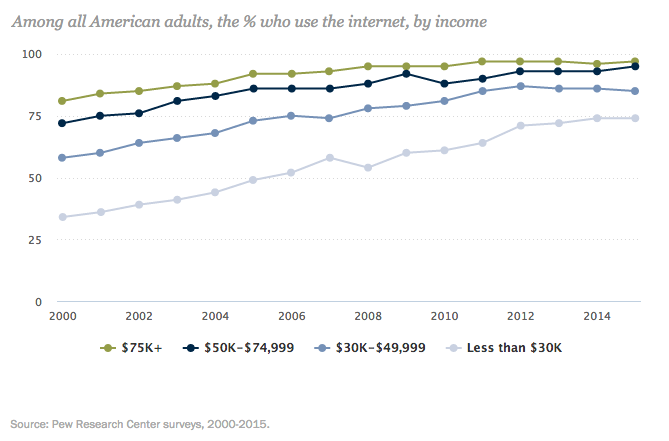
White House Unveils New Plan To Get Affordable Broadband Access To Low-Income Households
By 2015 it seems like everyone has broadband access, but that “everyone” is very deceptive. Although the vast majority of middle- and high-income homes in the United States have broadband access at home, low-income homes are much less likely to. [More]
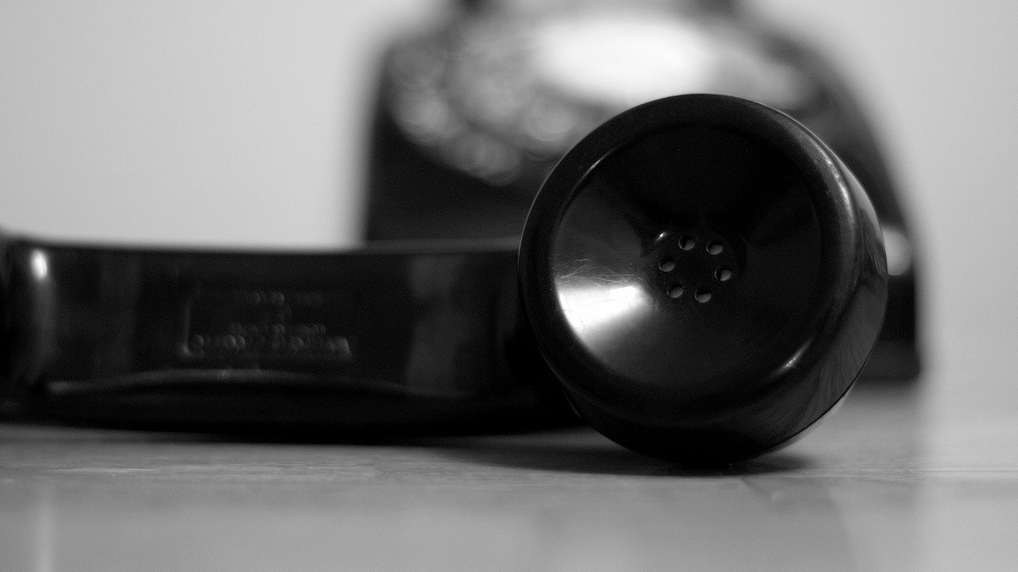
FCC Votes To Expand Lifeline To Broadband; Plans To Reduce Waste, Enhance Scrutiny
The FCC voted 3-2 today to expand the Lifeline program for low-income consumers to include an optional credit for broadband access. [More]

The FCC Is Considering A Big Change To Lifeline — But What Is It, And How Does It Work?
The FCC is going to be voting this week on a proposal to make a big change to one of their programs, Lifeline. The program — a subsidy that helps low-income consumers pay for phone service — may expand to help them pay for broadband, too. The topic is politically charged and coverage can be a bit confusing, so here’s a guide on what the FCC currently does with it and what they’re planning to do next. [More]
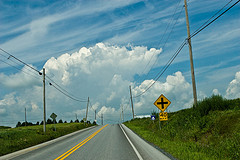
How Do You Convince The Cable Co To Lay Broadband To A Semirural Area?
Like many Americans, Liv and her neighbors are cut off from high-speed broadband access because they live in an area that the cable company says is too far for them to run lines to. She says she’s spent a few years trying to convince them but hasn’t made any headway, even getting the neighbors to band together and say they would all agree to service. What can she do to change AT&T or Comcast’s mind, or can she even and would she be better off with a DIY solution? [More]

Knowledge Is Power?
Self-proclaimed leading contemporary critic of the Internet Andrew Keen says that increased broadband access will lead to a second Holocaust. Seriously.


